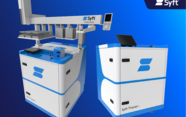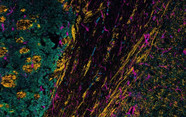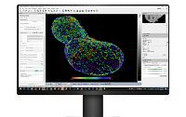Analyzing Polymer Solutions Used in Inkjet Printing Using GPC/SEC

contributed by Malvern Panalytical |
Introduction
Inkjet printing of polymer solutions is an area of interest for depositing precise, high-throughput patterns of functional polymer. The applications of the polymer patterns include OLEDs, organic circuits, and textiles. The efficacy of this printed pattern can be negatively impacted by the concentration and viscosity of the polymer solution, the molecular weight and molecular weight distribution of the polymer, and level of branching in the polymer. Therefore, it is of keen interest to understand the effect of inkjet printing on the degradation of polymers. In this application note, the molecular weight (MW) and molecular weight distribution (MWD) of various polymers is shown as a function of time during inkjet printing. The data shown in this application note is from references [1-2].
Experimental
Two different Malvern Viscotek Size Exclusion Chromatography (SEC) systems were used to characterize the polymers after various durations of inkjet printing. The front end of both systems was a Malvern Viscotek GPCmax that includes an autosampler, low pulsation isocratic pump, and an online eluent degasser. One system was comprised of a single Malvern Viscotek refractive index (RI) detector. This system ran THF as the mobile phase, was calibrated with a series of poly(methyl methacrylate) (PMMA) standards, and was used for the analysis of the polymer MW and MWD with inkjet printing time. This system is commonly referred to as a Conventional Calibration system and will only report MW’s and MWD’s relative to the chemistry of the standard (PMMA in this case).
Log in or register to read this article in full and gain access to The Analytical Scientist’s entire content archive. It’s FREE!

















